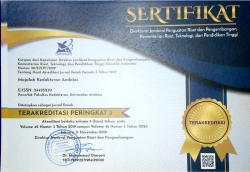Exploring the Therapeutic Landscape: A Systematic Review on the Anti-inflammatory Effects of Probiotics in Colitis-associated Colorectal Cancer
Abstract
Background: Cancer is the second-leading cause of mortality worldwide. The inflammatory process has a well-known correlation with colorectal cancer, with chronic inflammation leading to malignancy. Long-term colitis disease has a 2-3-fold higher risk of colorectal cancer. Inflammation is involved in the development and progression of colitis-associated colorectal cancer (CAC), with molecular mediators and cytokines contributing to carcinogenesis. A diet of dairy products, such as probiotics, has been linked to a decrease in the incidence of colorectal cancer. Probiotics, known for their ability to modulate gut microbiota and immune responses, could potentially disrupt the inflammatory microenvironment implicated in the progression of colorectal cancer.
Methods: We searched three databases: PubMed, ScienceDirect, and Wiley Online Library, using the respective keywords. A total of 248 studies were screened for eligibility, and nine studies eventually met the criteria and were reviewed. The SYRCLE RoB Tools were used to assess the risk of bias in the included studies.
Results: The present evidence showed that treatment with probiotics was considered to be able to ameliorate the inflammation occurring in the CAC progression, as reflected in the severity of clinical signs, the expression of inflammatory markers, and the regulation of some pathways.





















